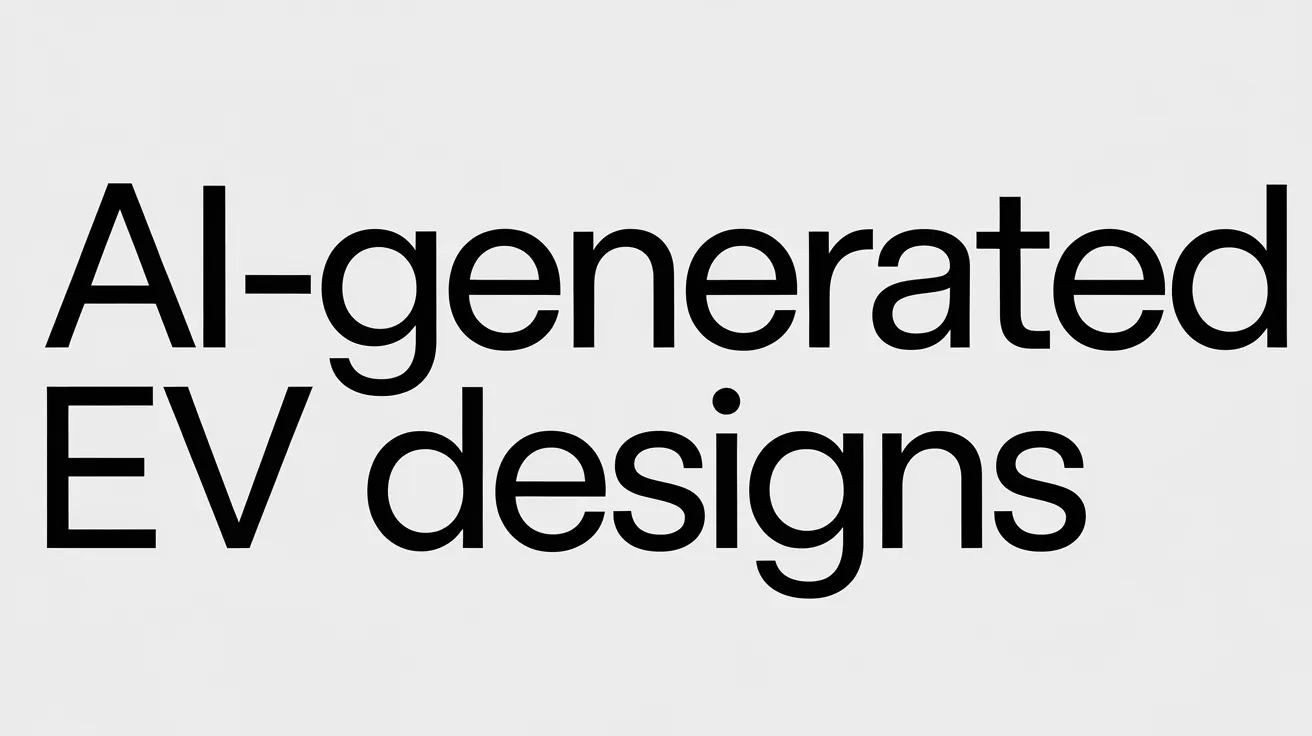AI-generated EV Designs for Future Cars

Engineers at MIT have made remarkable strides in automotive design with the development of an extensive open-source database containing over 8,000 electric vehicle (EV) designs. Known as “DrivAerNet++”, this resource allows for rapid integration with artificial intelligence (AI) to potentially transform how cars are designed and manufactured.
Understanding the DrivAerNet++ Database
DrivAerNet++ consists of detailed 3D models of various vehicles that inform on key specifications, especially regarding aerodynamic performance. This comprehensive digital library builds on the existing standard designs of current vehicles, enhancing them with rigorous aerodynamic data. Such resources could cut down the average design cycle for EVs, which historically has been extensive, taking companies several years and considerable resources to refine designs.
Advancing Electric Vehicle Design Through AI
The team presented their findings at the NeurIPS conference and published their research on the arXiv database, outlining the interplay between this large dataset and AI technology. They reported generating an impressive 39 terabytes of data, utilizing the MIT SuperCloud—an advanced computing cluster dedicated to scientific research. This substantial output allows for enhanced machine-learning training that could accelerate the design process significantly.
Methodological Innovations in Design Testing
The engineering team employed algorithms capable of adjusting 26 important design parameters, such as vehicle length and aerodynamic features, while evaluating each design for novelty and performance potential. Complexity in traditional design processes has often stifled innovation, with slow iterations leading to missed opportunities for improvement. Faez Ahmed, a mechanical engineering assistant professor at MIT, emphasized the transformative potential of larger datasets. They provide a foundation for training machine-learning models to produce superior designs efficiently.
Potential Environmental Impact and Future Directions
Mohamed Elrefaie, a student involved in the research, highlighted that the acceleration of EV design not only benefits manufacturers but could also play a crucial role in environmental sustainability. More efficient vehicles reaching consumers sooner could contribute positively to climate goals. The intersection of AI with automotive design opens pathways for faster iterations and innovation, which is crucial in responding to the pressing global demand for sustainable transportation solutions.
By providing rich datasets and application of AI, models can produce optimized designs in seconds instead of hours, leading to relevant advancements in efficiency and performance for future electric vehicles. As this methodology evolves, it promises to reshape not just how cars are built, but the capabilities of AI-driven design as a whole.